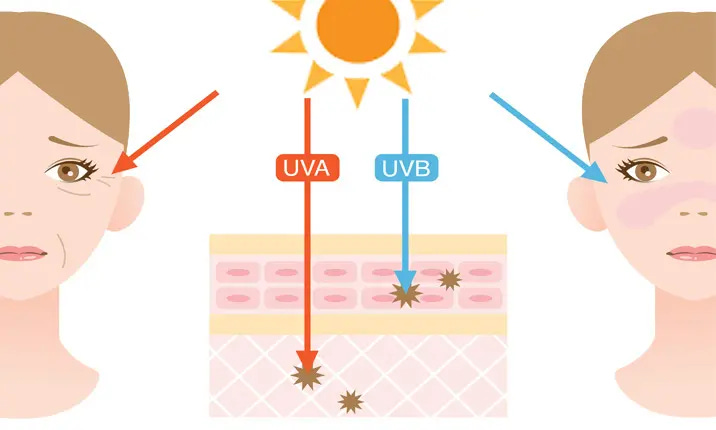The Importance of Sunscreen
Written by Lordina Yelioni
Sunscreen is an essential tool in protecting your skin from the harmful effects of ultraviolet (UV) radiation. Whether it's a sunny day at the beach or a cloudy afternoon, your skin is constantly exposed to UV rays that can cause sunburn, premature aging, and even skin cancer. Using sunscreen is one of the easiest and most effective ways to reduce your risk.
How Sunscreen Works
Sunscreen works by absorbing, reflecting, or scattering the sun’s UV rays before they can penetrate the skin. There are two types of UV rays to be concerned about UVA and UVB. UVA rays are primarily responsible for skin aging, while UVB rays cause sunburn. Both types can lead to skin cancer. Broad-spectrum sunscreens offer protection against both UVA and UVB radiation, making them the best choice for comprehensive coverage.
Choosing the Right Sunscreen
When selecting sunscreen, the Sun Protection Factor (SPF) is key. SPF indicates how long you can be exposed to the sun without getting burned compared to unprotected skin. Dermatologists recommend using an SPF of at least 30, which blocks about 97% of UVB rays. Higher SPF levels offer slightly more protection, but no sunscreen can block 100% of UV rays.
Using sunscreen regularly helps protect against:
Sunburn: Even one severe sunburn in childhood or adolescence doubles the risk of developing melanoma later in life.
Premature Ageing: UV exposure is the leading cause of wrinkles, age spots, and other signs of premature skin aging.
Skin Cancer: Sunscreen significantly reduces the risk of developing all three types of skin cancer, including melanoma, the deadliest form.
Daily Protection
Sunscreen isn’t just for the beach. UV rays can penetrate through clouds and even windows, meaning your skin is at risk year-round. Incorporating sunscreen into your daily skincare routine is a simple but powerful way to maintain healthy skin and prevent long-term damage.
Conclusion
Sunscreen is your skin’s best defense against the harmful effects of UV radiation. By choosing a broad-spectrum sunscreen with at least SPF 30 and applying it daily, you can enjoy the sun while minimizing the risks to your skin’s health.
References
American Academy of Dermatology, "Sunscreen FAQs," 2023.
Skin Cancer Foundation, "How Sunscreen Works," 2023.
Written by Lordina Yelioni from MEDILOQUY


